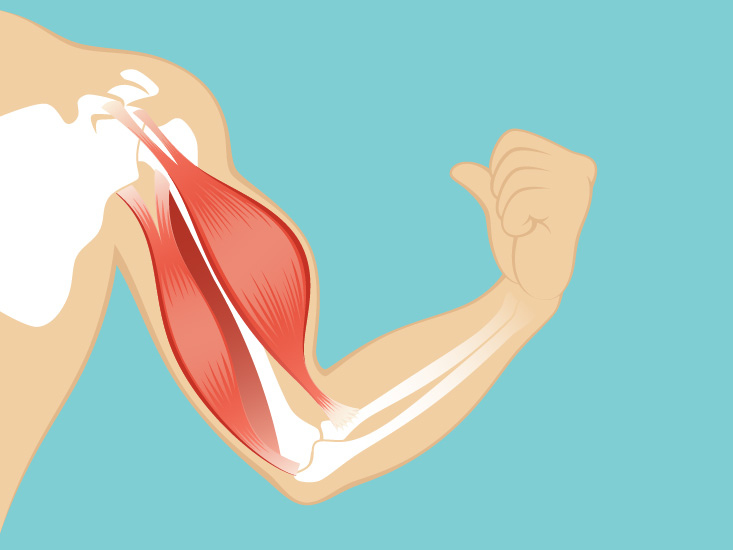
A while back, VirTra released a Trainer’s Corner article addressing the fact that muscles don’t actually have memories. This comes from a very commonly repeated phrase in law enforcement. Many times, instructors will tell their students that they need to pull the trigger “x” number of times to develop “muscle memory”. This memory will then cause the finger to magically do what you’ve taught it to do…without you even thinking about it! Yeah, muscles still don’t have memories.
Along with “muscle memory,” you may have heard that it takes thousands of repetitions for you to master a skill, or to make it instinctive. I’ve read countless training articles stating what they believe the “magic number” of repetitions is. I’ve seen it as low as a couple hundred, to over 10,000. That’s quite a range.
In addition to the above, some people will say that it’s a matter of how much time you spend training to master a skill. Again, this amount of time that is suggested seems to vary quite a bit. Some suggest that it takes 10,000 hours to become a master of a skill. To put it in perspective, 10,000 hours would take almost 7 years if you trained for 4 hours a day, every day!
So, when we train, what is really going on? How can we improve? Is there a “magic number” that we should aim for?
Your muscles respond to neurons firing from your brain. Your brain has the memories, and it tells your muscles what to do. The important question should be “how do I train my brain to tell my muscles what to do?” Yes, it’s not as sexy or cool as saying “muscle memory,” but it is more accurate!
Improving means teaching your brain to properly tell your muscles what to do. This is done through a variety of methods, many of which can be done on your VirTra simulator.
For example, if you are focusing on shooting more accurately or faster, you can start with drills that are very simple. This may include target shooting and then adding a shot timer. The important part is to make sure you aren’t increasing the level of difficulty before showing proficiency with the current skill.
Then you may want to add in movement to your training. Then you add in decision making, and so on. What you’re trying to do is to take the skill you want to master and apply it to any situation. Shooting fast is useless if you’re not accurate. Shooting accurate is useless if it wasn’t the right decision. So, in this example, you aren’t a master of shooting fast unless you can do it accurately and only when it’s appropriate (justified).
The last item I said I’d address was if there was any “magic number” that you should aim for when training. Short answer: no. Let’s face it, everyone is different. Every skill we want to learn is different. Circumstances surrounding the use of that skill are different. This means that the amount of time, repetitions, and drills to build up that skill are going to vary greatly. It is not as simple as saying more reps or more time is what is needed. Practice doesn’t make perfect, practice makes permanent. What we practice, how we practice and the context it is conducted are vital for transfer, or long-term learning. Context is a critical aspect of skill acquisition and transfer, learning a skill out of the context it is used is problematic. (Gray, 2021) (Hajian, 2019) (H. Ma, 1999)
As a trainer for 26 years, I’ve seen two things help people improve their skills the most. Training the skill properly and taking your time. That’s it. Do it right and do it as much as it takes until you can apply it to almost any situation.
Oh, and don’t forget to keep up on your training once you master a skill. While our muscles can’t forget things, our brains can.
Stay Safe!
References
- Gray, R. (2021). How we learn to move: A revolution in the way we coach & practice sports skills. Perception Action Consulting & Education LLC.
- Ma, C. T.-P. (1999). The effect of context on skill acquisition and transfer. Am J Occup Ther, 53(2), 138-144. doi: https://doi.org/10.5014/ajot.53.2.138
- Hajian, S. (2019). Transfer of learning and teaching: A review of transfer theories and effective instructional practices. IAFOR Journal of education, 7(1), 93-111.
- Miller, M. (n.d.). The Great Practice Myth: Debunking the 10,000 Hour Rule. Retrieved from Six Seconds: https://www.6seconds.org/2022/06/20/10000-hour-rule/
- Willis, B. (2021, April 6). Training Myths – Part 1. Retrieved from Winning Mind Training: https://winningmindtraining.com/myths-around-teaching-training-and-learning-part-1/
Recently Published
Join Our Newsletter







